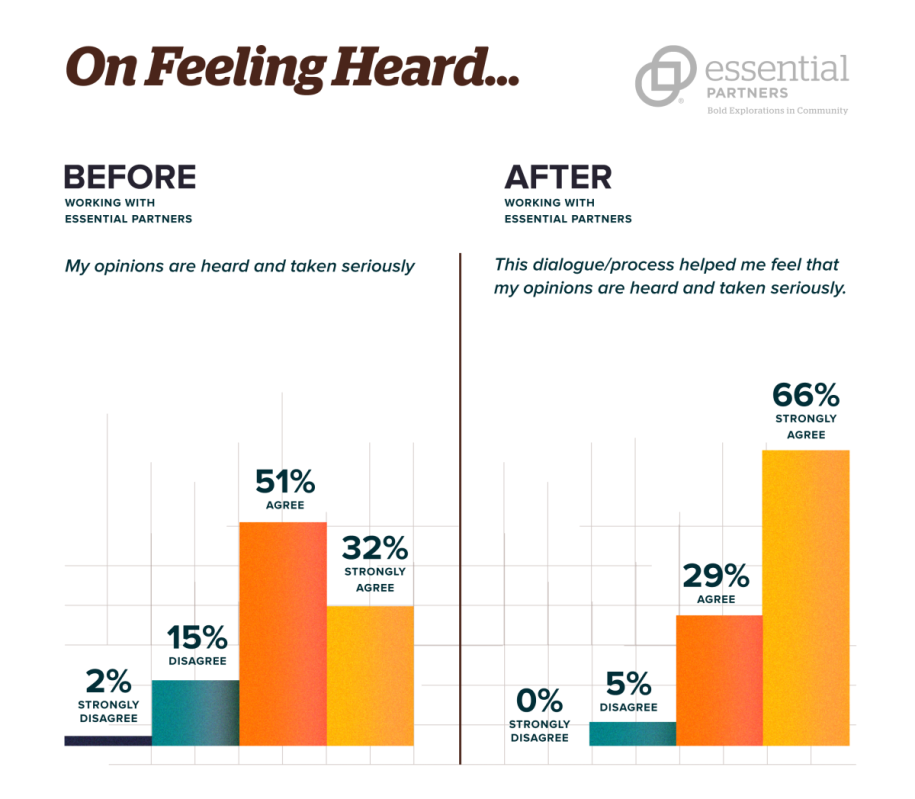
Breadcrumb
- Essential Partners
- Our Impact
- News and Notes
- Feeling Heard: Early Signs of EP's Impact
Feeling Heard: Early Signs of EP's Impact
When people in our communities feel that their views are being ignored because of who they are, our communities grow more divided across lines of identification and identity.
As part of an effort to understand the impact of our work on inclusion and social cohesion, Essential Partners surveys participants to gauge whether they feel heard and taken seriously. And although we only have preliminary data at this point, we are encouraged by early indications about the impact of our approach to dialogue.
Before participating in an EP dialogue, 17% of participants reported feeling that their opinions were not being heard or taken seriously in their communities. Following their participation in a dialogue, that number drops to just 5% of participants.

Our structure for conversation holds space for people to feel heard—even if they don’t agree. Across the communities where we work, over half of those who reported an improvement in feeling heard and taken seriously also perceived their community as more cohesive after their dialogue.
This is not to suggest that all opinions should be supported or taken seriously. Particularly in diverse communities, we must not explicitly or implicitly condone or accept discriminatory, hateful, or threatening language. Many of us, though, have had experiences of feeling unheard by our communities, and across the world we’re seeing that divide shape our communities.
Engaging in dialogue can support wider efforts to bring those who feel isolated back into conversation. We’re beginning to see that when people feel like their experiences and opinions are taken seriously, the community becomes more connected and more effective at working together.
